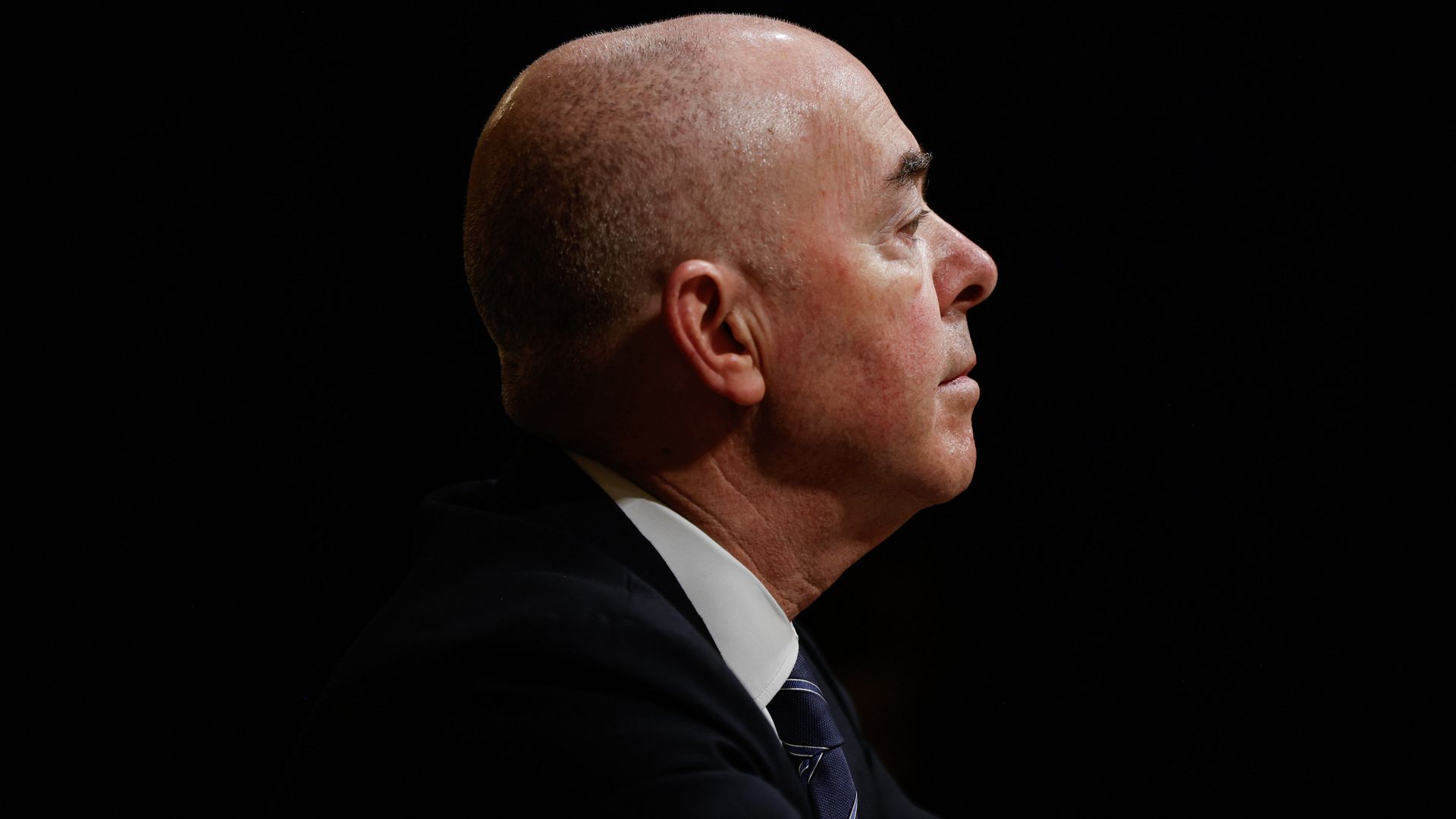
Homeland Security Secretary Alejandro Mayorkas testifies at a budget hearing at Capitol Hill on April 16, 2024. Photo: Julia Nikhinson/AFP via Getty Images
Senate Democrats on Wednesday squashed impeachment charges against Department of Homeland Security Secretary Alejandro Mayorkas, a swift end to the GOP's attempt to oust him.
Why it matters: Killing the charges without a full trial highlights how Democrats saw the impeachment as political theater, but Republicans argue it sets a dangerous precedent.
- Senators voted along party lines to rule the articles of impeachment unconstitutional for not meeting the standard of high crimes and misdemeanors.
- Sen. Lisa Murkowski (R-Alaska) voted present on the first article, rather than joining with the rest of her Republican colleagues who voted against the articles being unconstitutional.
- Both impeachment articles were declared unconstitutional by a vote of 51 to 48 and 51 to 49.
The big picture: Republicans have made border security and immigration their top campaign issue this year, and dismissing the impeachment effort was a tough vote for Democrats who are facing competitive races to keep their seats in November.
- Sens. Jon Tester (D-Mont.), Jacky Rosen (D-Nev.), Sherrod Brown (D-Ohio) and Bob Casey (D-Pa.) all voted against the impeachment effort despite facing reelection.
Catch up quick: The House made Mayorkas the first cabinet official to be impeached in over 150 years in February.
- The impeachment articles charged Mayorkas with breach of public trust and failing to uphold U.S. laws.
- But Democrats argued Mayorkas was impeached because of policy disputes and not any high crimes or misdemeanors.
Between the lines: An effort to reach a deal to allow Republicans time to debate the articles of impeachment before the motion to dismiss fell apart, with Sen. Eric Schmitt (R-Mo.) objecting.
- Senate Majority Leader Chuck Schumer (D-N.Y.) then moved to dismiss the charges on the basis that they are not constitutional.

